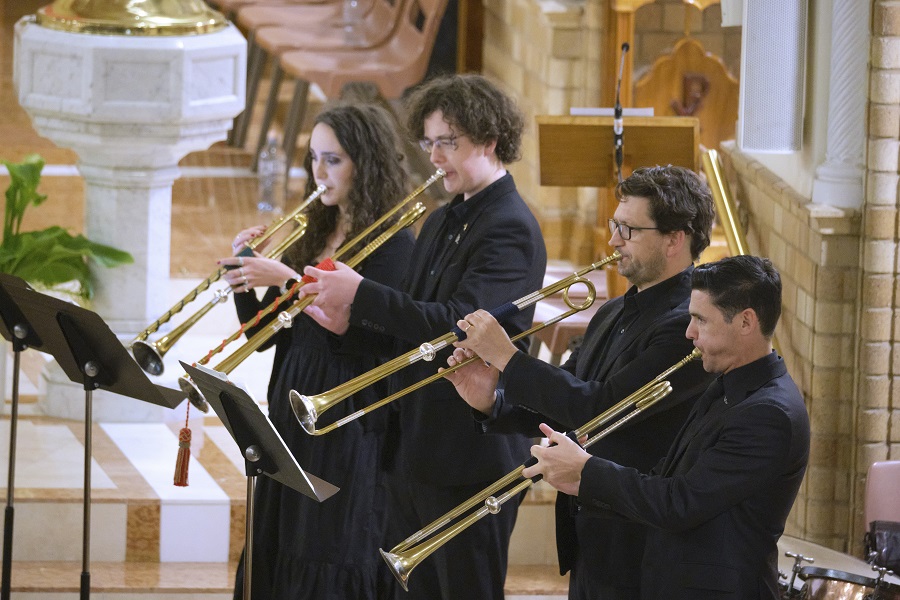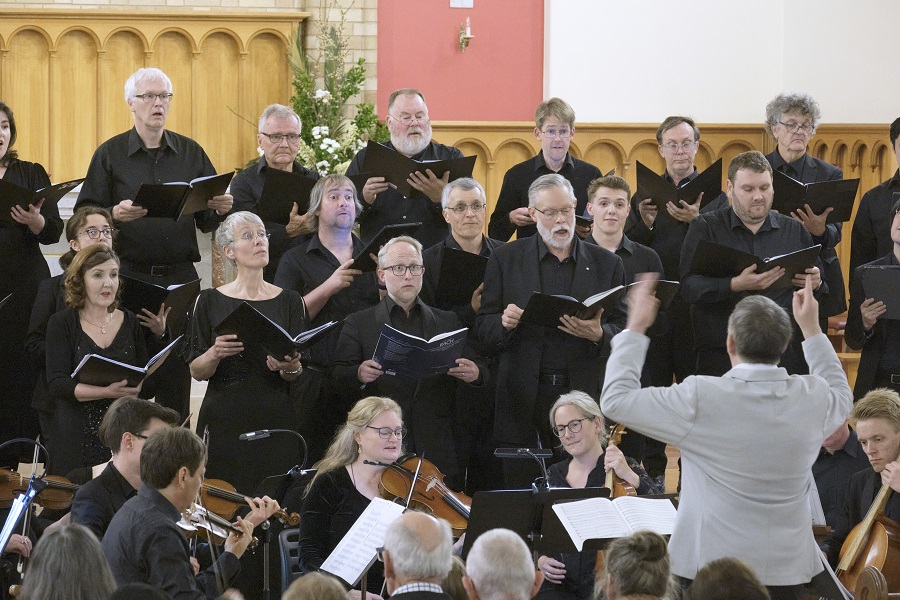Music / Canberra Bach Ensemble, St Christopher’s Cathedral, October 5. Reviewed by HELEN MUSA.
The coming ACT election was front and centre last night at St Christopher’s Cathedral when Canberra Bach Ensemble chose a famous “election cantata” to open its program.
Preise, Jerusalem, den Herrn BWV 119 was composed by Bach in Leipzig for the inauguration of a new town council in August 1723 and it had several audience members including me, speculating on what it would be like if Andrew Barr were to commission an ACT Election Cantata — in our dreams!
Saturday night’s concert had an upbeat, celebratory tone as it both marked 25 years since Andrew Koll had founded the ensemble and its recent return form the Leipzig Bach Festival in Germany.
It seems an enormous pity that more young people don’t know Bach, for if there’s one thing that jazz aficionados got right, it was the proposition that “Bach swung”.
This was evident as the instrumentalists, under the watchful eye of Stephen Freeman, screwed up their faces to study their scores, while you could hardly wipe the smiles off the faces of the choristers.
It may seem extraordinary that a humble cantor from Saint Thomas’s church in Leipzig should have created some of the greatest vocal music in history, and Koll was keen to talk up the parallels between Leipzig and Canberra – “Leafy, moderately-sized university towns”.
At all events, this zippy program presented four accessible cantatas, including two based on hymns that everyone knows.

First up was the aforementioned election cantata, Praise the Lord, Jerusalem, performed with an orchestra enhanced by Robyn Mellor and Olivia Gossip on recorder and a trumpet and percussion group led by Sydney’s Simon Wolnizer, to open magnificently.
It’s always worth listening to the lyrics in Bach’s cantatas, but here especially so, since the subject matter proved remarkably contemporary, as when the soloists sang of “sleepless hours of worry with a new election”, “prudent authority” and “wise governance”. But the Almighty is not far away as the alto, Maartje Sevenster, sternly admonished, “Authority is God’s gift”.
Second up, more in the purely celebratory mode, was Bringet dem Herrn Ehre seines Namens BWV 148 (Bring to the Lord the honour due His name), a work that has had music scholars scratching their heads over its dating.
Unusually set for just tenor and alto soloist, it featured a lively chorale opening enhance by trumpets and oboe, before guest tenor Timothy Reynolds, who has worked in Leipzig, sang a light, joyous aria which was a treat to hear, his bell-like voice enunciating the words, “how beautifully the happy sounds call the blessed to the praise of the highest”.
After a short break, It was time for the famous “tunes”, known in English as Now Thank We All Our God and Praise my Soul the King of Heaven.
Both taken from hymns written almost a century before Bach got his hands on them, they have been massively transformed into complex works of choral music.
In the first, Nun danket alle Gott BWV 192, Now Thank We All Our god, the composition of the orchestra was changed so that historical flute expert Sally Walker, who had spent years performing with an orchestra in Leipzig, joined the ensemble with Dante Costa, both on transverse flute. Together with the historical oboes, they provided a notable counterpoint to the fast opening of the vocal chorus, also punctuating the duet between soprano Greta Claringbould and bass Andrew Fysh.
This is a short piece, possibly composed for a wedding, with the well-known melody subtly hidden beneath the soprano part of the final chorale.
There followed Lobe den Herren, den mächtigen König der Ehren BWV 137, Praise my Soul the King of Heaven, which saw the trumpets and timpanist return to back the strong opening chorale, “Awake, let the music be heard”.
This cantata featured set piece for all the soloists, before the concluding chorale and Amen.
Koll returned with what he called “a party piece” as an encore, another wedding cantata, Wir kommen, deine Heiligkeit, “We come, your holiness”.
Who can be trusted?
In a world of spin and confusion, there’s never been a more important time to support independent journalism in Canberra.
If you trust our work online and want to enforce the power of independent voices, I invite you to make a small contribution.
Every dollar of support is invested back into our journalism to help keep citynews.com.au strong and free.
Thank you,
Ian Meikle, editor






